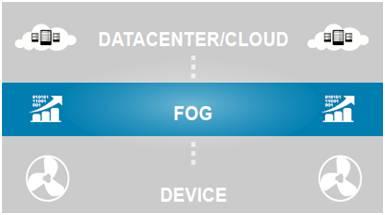Fog Computing: Advantages and Disadvantages
Advertisement
This page explores the benefits and drawbacks of Fog Computing. It details the advantages and disadvantages of Fog Computing, providing a comprehensive overview of this technology.
Introduction:
Cloud computing has become a standard for processing, analyzing, and storing data from client devices. With the rapid growth of IoT (Internet of Things) devices, we’re seeing an explosion of data generated daily. Estimates predict around 50 billion IoT devices will be online by 2020. The traditional cloud computing model struggles to handle this massive bandwidth due to latency, volume, and bandwidth limitations. Fog computing was developed to address these challenges.
What is Fog Computing?
Fog computing extends the cloud closer to the data source. Devices that generate the data are considered “fog nodes.” A fog node is any device with a network connection, storage, and computing capabilities. Examples include switches, controllers, routers, servers, cameras, and more. Fog computing is sometimes referred to as edge computing.

Fog computing is primarily used for:
- Analyzing time-sensitive data at the network edge, close to the point of origin, instead of sending large amounts of data to the cloud. This allows for faster responses, processing IoT data in milliseconds.
- Sending only selected data to the cloud for deeper analysis and long-term storage.
- Providing services to a large number of devices spread across a wide geographical area.
- Supporting devices in extreme environments.
Benefits or Advantages of Fog Computing
Here are some key advantages of fog computing:
- Enhanced Security: Fog nodes can be protected using existing IT security protocols.
- Reduced Bandwidth Costs: By processing data locally instead of sending everything to the cloud, fog computing can significantly reduce network bandwidth usage, leading to lower operational costs.
- Lower Latency: Faster decision-making is possible because of reduced latency. This is critical for applications like autonomous vehicles, where quick responses can prevent accidents.
- Improved Privacy: User data is analyzed locally rather than being sent to the cloud, offering better privacy. IT teams also retain greater control over the devices.
- Easier Application Development: Developing fog applications is made easier with the right tools, allowing businesses to drive machines according to customer needs.
- Mobility: Fog nodes are mobile and can join or leave the network at any time.
- Environmental Resilience: Fog nodes can withstand harsh environmental conditions, such as those found on trains, in vehicles, underwater, or on factory floors. They can also be installed in remote locations.
- Reduced Latency: Analyzing data locally leads to less round-trip time and lower data bandwidth requirements.
Drawbacks or Disadvantages of Fog Computing
Fog computing also has its limitations:
- Security Challenges: Encryption algorithms and security policies can make it difficult for devices to exchange data. Errors in security algorithms can expose data to hackers. Other security concerns include IP address spoofing, man-in-the-middle attacks, and wireless network vulnerabilities.
- Data Consistency: Achieving high data consistency across the fog computing environment can be challenging and require significant effort.
- Data Management: While fog computing aims to create a global storage concept with infinite size and the speed of local storage, data management remains a complex issue.
- Trust and Authentication: Trust and authentication are significant concerns in a distributed fog environment.
- Complex Scheduling: Scheduling tasks across client devices, fog nodes, and back-end cloud servers can be complicated.
- Higher Power Consumption: Fog nodes consume more power compared to a centralized cloud architecture.
Advertisement
 RF
RF



